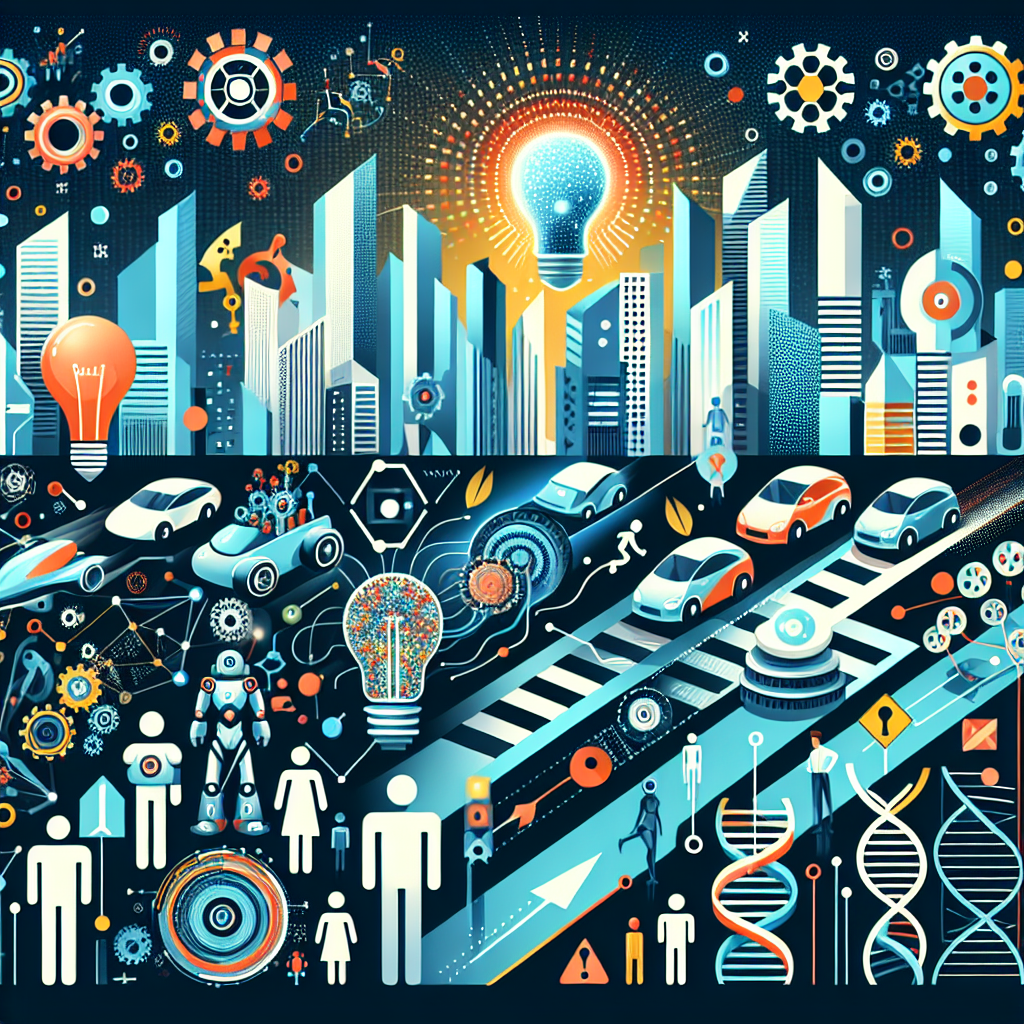Artificial General Intelligence (AGI) and the Singularity: Examining the Potential Impact on Society
Introduction
In recent years, the field of artificial intelligence (AI) has made significant advancements, with machines now capable of performing tasks that were once thought to be the exclusive domain of human intelligence. However, while current AI systems are capable of specific tasks such as image recognition or natural language processing, they lack the general intelligence of human beings. This is where Artificial General Intelligence (AGI) comes in.
AGI refers to machines that possess the ability to understand, learn, and apply knowledge across a wide range of tasks, much like a human being. The concept of AGI has been the subject of much speculation and debate, with some experts predicting that the development of AGI could lead to a technological singularity – a point at which machines surpass human intelligence and trigger unprecedented societal changes.
In this article, we will explore the concept of AGI, its potential impact on society, and the implications of the singularity. We will also address some common questions and concerns surrounding AGI and the singularity.
What is AGI?
AGI refers to machines that possess the ability to understand, learn, and apply knowledge across a wide range of tasks, much like a human being. Unlike current AI systems, which are designed for specific tasks, AGI aims to replicate the general intelligence of human beings. This means that AGI systems would be capable of reasoning, problem-solving, and learning new skills without being explicitly programmed to do so.
The development of AGI is seen as a major milestone in the field of AI, as it represents a significant leap in the capabilities of machines. While current AI systems are limited to specific tasks and lack the ability to generalize their knowledge, AGI systems would be able to adapt to new situations and learn from experience, much like humans.
Potential Impact on Society
The development of AGI has the potential to have a profound impact on society, with both positive and negative consequences. On the positive side, AGI could lead to major advancements in fields such as healthcare, transportation, and education. For example, AGI systems could help doctors diagnose diseases more accurately, assist in the development of new drugs, and personalize education to individual students’ needs.
However, the widespread adoption of AGI could also have negative consequences, such as job displacement and economic inequality. As AGI systems become more capable of performing a wide range of tasks, many traditional jobs could be automated, leading to the displacement of millions of workers. This could exacerbate existing economic inequalities and create social unrest.
In addition, the development of AGI raises ethical and safety concerns. For example, there are concerns about the potential misuse of AGI for malicious purposes, such as autonomous weapons or surveillance systems. There are also concerns about the possibility of AGI systems developing unintended behaviors or biases, which could have harmful consequences for society.
The Singularity
The concept of the technological singularity is closely linked to the development of AGI. The singularity refers to a hypothetical point in the future at which machines surpass human intelligence and trigger unprecedented societal changes. Some experts believe that the development of AGI could lead to the singularity, as machines become capable of improving their own intelligence and surpassing human cognitive abilities.
The implications of the singularity are profound and far-reaching. Some experts believe that the singularity could lead to a utopian future, in which machines solve all of humanity’s problems and create a world of abundance and prosperity. However, others warn that the singularity could have catastrophic consequences, such as the extinction of humanity or the loss of control over AI systems.
FAQs
Q: When will AGI be developed?
A: The development of AGI is a complex and challenging task, and there is currently no consensus on when AGI will be achieved. Some experts predict that AGI could be developed within the next few decades, while others believe that it could take much longer.
Q: What are the ethical concerns surrounding AGI?
A: There are a number of ethical concerns surrounding AGI, such as the potential misuse of AGI for malicious purposes, the displacement of workers, and the development of unintended behaviors or biases. It is important for researchers and policymakers to address these concerns and ensure that AGI is developed in a responsible and ethical manner.
Q: How can we prepare for the impact of AGI?
A: It is important for society to start preparing for the impact of AGI by investing in education and training programs, developing policies to address job displacement, and establishing ethical guidelines for the development and deployment of AGI. By taking proactive steps, we can help ensure that AGI has a positive impact on society.
Conclusion
The development of AGI has the potential to revolutionize society in ways that we can only begin to imagine. While the implications of AGI and the singularity are profound and far-reaching, it is important for researchers, policymakers, and the public to engage in informed discussions about the potential impact of AGI and to take proactive steps to ensure that AGI is developed in a responsible and ethical manner. By addressing the challenges and opportunities presented by AGI, we can help shape a future in which AI enhances human welfare and contributes to the betterment of society.

